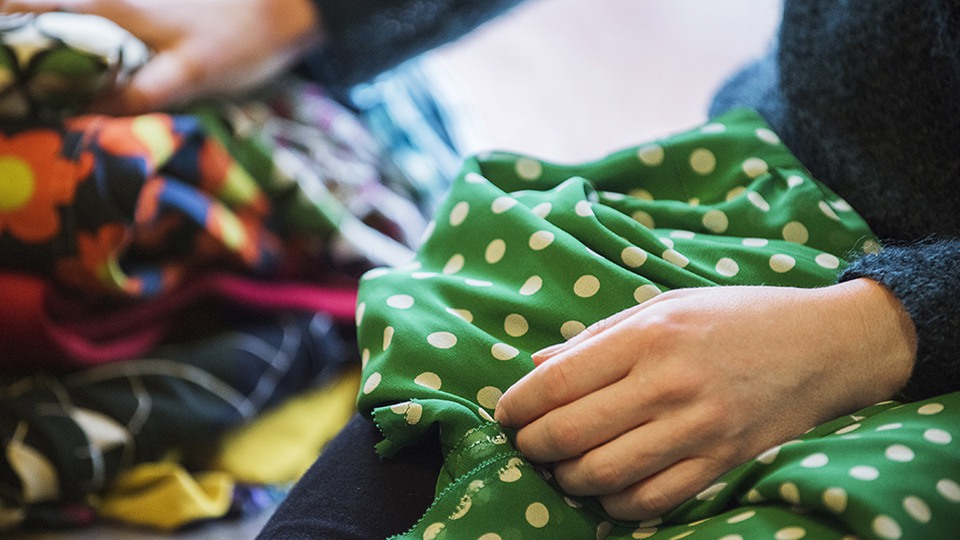
Automated sorting will increase textile recycling
In the Siptex project, IVL and several other players are working to develop automated sorting for high-quality textile recycling. Siptex is now taking the next step and establishing the world's first automated textile sorting plant on an industrial scale. It is planned to open in Malmö in 2020.
The potential for increasing textile recycling in Sweden is great. Today, only around five percent of the almost 140,000 tons of new textiles that are placed on the Swedish market each year are recycled.
Siptex stands for Swedish innovation platform for textile sorting and will be the missing link between textile collection and high-quality textile recycling.
An automated textile sorting makes it possible to handle large textile flows and at the same time produce textile fractions that are better adapted to different recycling processes than today's manual sorting. By matching customers' needs with fast and high-quality sorting, better conditions are created for increased fiber-to-fiber recycling.
IVL Swedish Environmental Institute leads the work in Siptex, which is a stage 3 project within Vinnova's initiative Challenge-driven innovation. Step 3 involves developing, testing and implementing solutions on an industrial scale.
During stage 2 of the project (which lasted 2016-2018), a sorting plant was operated in Sweden where around 700 tons of used textiles collected at recycling centers could be sorted based on the needs of potential customers. New collection opportunities for textiles and textile waste were tested and evaluated, as well as how targeted communication initiatives can contribute to increased textile collection.
During this step, a full-scale sorting plant in Malmö will be taken into use and operated by Sysav, one of the project's 21 partners. At full operation, it will be able to sort 24,000 tons of textile each year, which can then be recycled.
Through an active dialogue with fashion companies as well as sorters, recyclers and other companies in the textile area, sorting must be matched with customers' requirements. Quality assurance and environmental assessment of the sorting products are important parts of the project.
Project facts
- SIPTex – Swedish innovation platform for textile sorting
- Budget: SEK 55 million (of which SEK 22 million from Vinnova)
- Financier: Vinnova and project partners
- Partners: Siptex is led by IVL Swedish Environmental Institute and is implemented together with a broad consortium: Berendsen, Boer Group, Eco TLC, Gina Tricot, H&M, Human Bridge, Ica, Ikea, Kappahl, Kemikalieinspektionen, Kretslopp och vatten, Malmö Stad, Myrorna, Naturvårdsverket, Re:newcell, Röda korset, Stadium, Stockholm vatten och avfall, Sysav och VTT.
- Period: 2019 - 2022
Contact
Want to know more about IVL's services and offers? Enter your email address and choose which area you want to know more about, and we will get back to you.
NOTE! For questions about vacancies and thesis work, go to the Careers
tab in the main menu.
